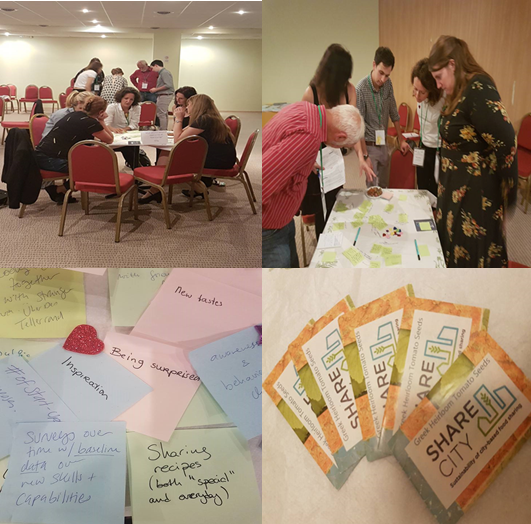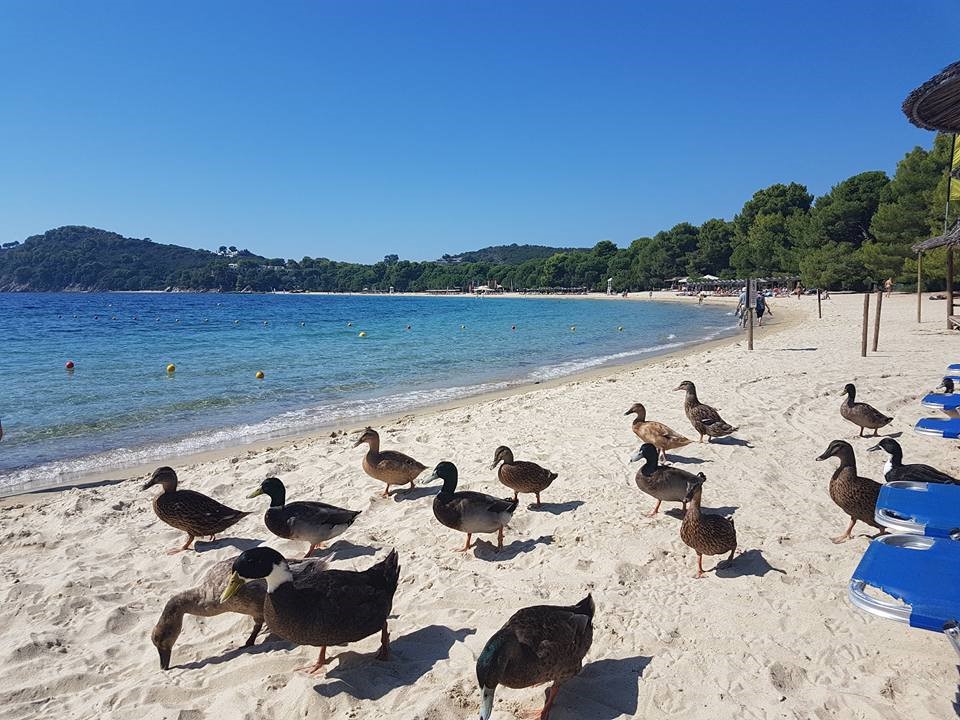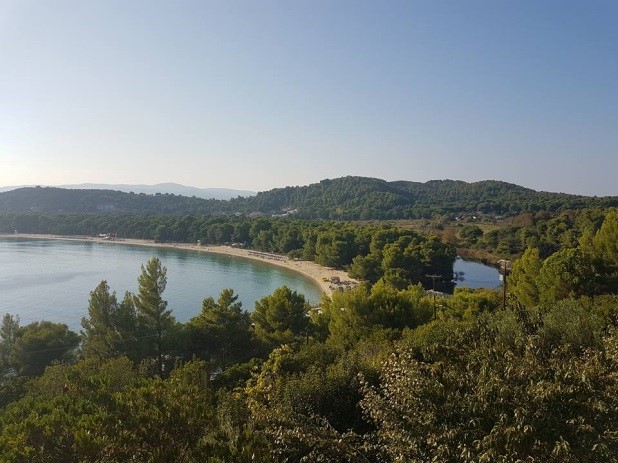SHARECITY @ ERSCP2017
Published by SHARECITY on the 19th October 2017.
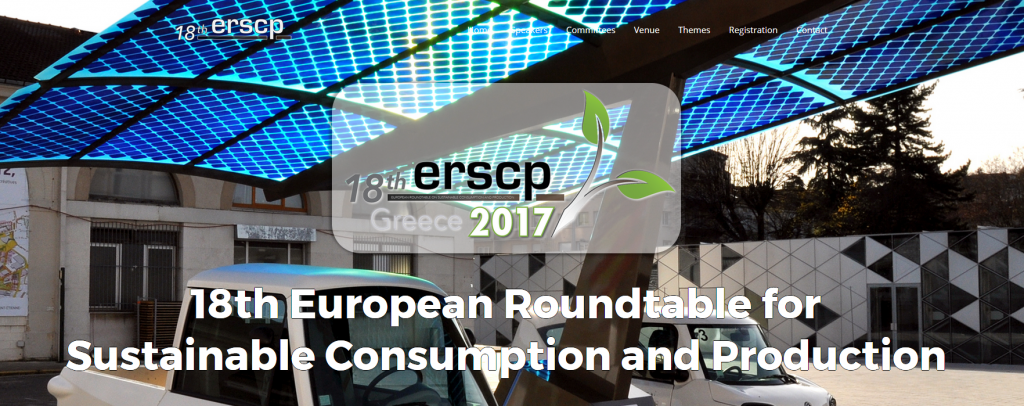
SHARECITY @ ERSCP2017
The SHARECITY team came together at the 18th European Roundtable for Sustainable Consumption and Production (ERSCP) Conference in Skiathos, Greece from the 1st – 5th October which was focused on the theme of a sustainable circular economy. 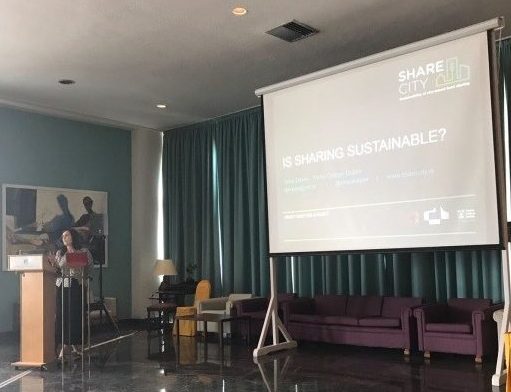
In the opening lecture by the Chair of the ERSCP Society, Professor Peter Glavic mapped out the future for sustainable consumption and production in which he highlighted the need to examine the role for sharing. Luckily, SHARECITY was on hand to provide a full day of lectures, presentations and workshops at the Conference with insights from across the project on the interface of sharing, sustainable consumption and production, and the circular economy.
Tuesday 2nd October began with my keynote address which posed the question ‘Is Sharing Sustainable?’. In this lecture I outlined the challenges and opportunities around identifying sustainability in the diverse practices of sharing, drawing on case studies from our SHARECITY100 Database and in-depth ethnographies to illustrate how food sharing initiatives are approaching this tricky question. Reflecting on the meaning of both sharing and sustainability, I put forward the case for developing a co-designed sustainability ‘sharescore’ to provide evidence of impact for initiatives, sharers (actual and potential) and those responsible for governing sharing, without disciplining the hard to capture qualities around conviviality, commensality and community capacity building. Beyond simple input-output metrics, any such system of sustainability impact assessment would need to attend to the practice and performance qualities of sharing and ask four fundamental questions: what basic needs are being fulfilled?; what limits are being avoided?; what inequalities are being redressed?; and what societal progress is being made through sharing?
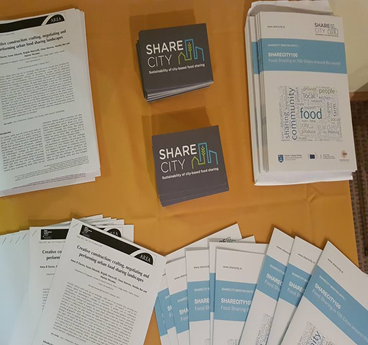 My keynote was followed by a special session on Everyday Futures and Sustainable Lifestyles, convened by Jaco Quist (Delft), Josefin Wangel (Stockholm), Annelise de Jong (Kista) and myself. In this session we were able to learn about participatory backcasting in the Glamurs project and Humble Design from Sweden. Oona Morrow presented a reflection on the design of kitchens within a range of SHARECITY food sharing initiatives encountered in Berlin and New York, while I presented the roots of the SHARECITY project which emerged from the CONSENSUS project participatory backcasting and HomeLab experiments.
My keynote was followed by a special session on Everyday Futures and Sustainable Lifestyles, convened by Jaco Quist (Delft), Josefin Wangel (Stockholm), Annelise de Jong (Kista) and myself. In this session we were able to learn about participatory backcasting in the Glamurs project and Humble Design from Sweden. Oona Morrow presented a reflection on the design of kitchens within a range of SHARECITY food sharing initiatives encountered in Berlin and New York, while I presented the roots of the SHARECITY project which emerged from the CONSENSUS project participatory backcasting and HomeLab experiments.
With just time for a quick co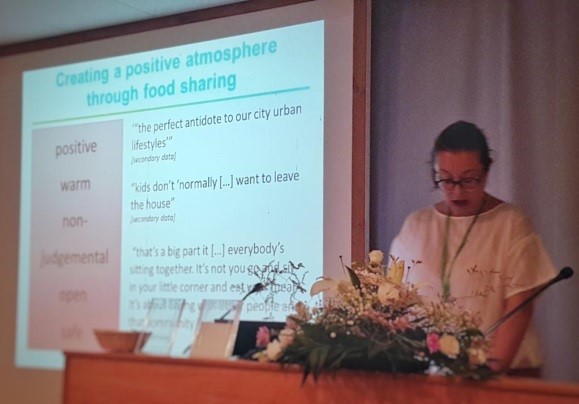 ffee, SHARECITY brought the practice of food sharing to the conference with a stimulating paper session drawing out key themes from recently completed fieldwork across nine cities. A rich diversity of themes and practices were covered, from the social relations of food sharing in London presented by Brigida Marovelli, to the question of food as commons in Berlin presented by Oona Morrow. The manifold societal challenges around urban food systems were laid bare and the disruptive potential of ICT to shape responses to those challenges and stretch the scale of sharing were considered by Marion Weymes through the lens of surplus food redistribution. Monika Rut then presented an interrogation of smart city and sharing city narratives as experienced in Singapore. Running through these presentations was the idea of connectivity, explored in detail by Ferne Edwards in her critical analysis of food sharing and the concept of an urban ecosystem. These papers and more will form part of a forthcoming special issue of Geoforum in 2018.
ffee, SHARECITY brought the practice of food sharing to the conference with a stimulating paper session drawing out key themes from recently completed fieldwork across nine cities. A rich diversity of themes and practices were covered, from the social relations of food sharing in London presented by Brigida Marovelli, to the question of food as commons in Berlin presented by Oona Morrow. The manifold societal challenges around urban food systems were laid bare and the disruptive potential of ICT to shape responses to those challenges and stretch the scale of sharing were considered by Marion Weymes through the lens of surplus food redistribution. Monika Rut then presented an interrogation of smart city and sharing city narratives as experienced in Singapore. Running through these presentations was the idea of connectivity, explored in detail by Ferne Edwards in her critical analysis of food sharing and the concept of an urban ecosystem. These papers and more will form part of a forthcoming special issue of Geoforum in 2018.
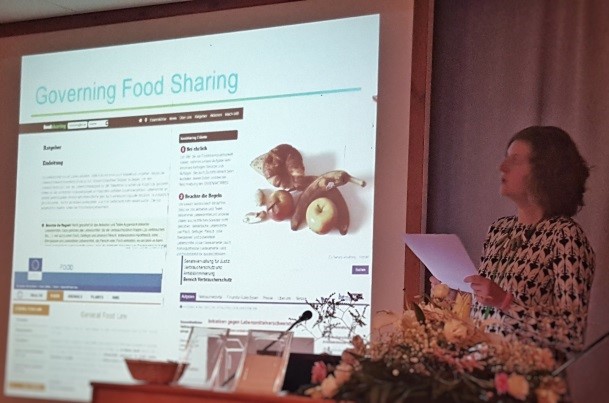 With a quick change over lunch the final session of the day saw the SHARECITY team create a conversational space within the conference for a SHARECITY Café, drawing inspiration from the world café format for exchanging and co-creating knowledge. Led by Brigida Marovelli, participants from across Europe with expertise in sustainable production and consumption shared their experiences of food sharing and explored how we might identify and account for the outcomes of those activities. The findings from this workshop will be combined with one held in Dublin in September and published as a blog. In the true spirit of SHARECITY, the workshop finished with the sharing of Greek Heirloom tomato seeds sourced by Brigida Marovelli through her fieldwork with food sharing initiatives in Athens.
With a quick change over lunch the final session of the day saw the SHARECITY team create a conversational space within the conference for a SHARECITY Café, drawing inspiration from the world café format for exchanging and co-creating knowledge. Led by Brigida Marovelli, participants from across Europe with expertise in sustainable production and consumption shared their experiences of food sharing and explored how we might identify and account for the outcomes of those activities. The findings from this workshop will be combined with one held in Dublin in September and published as a blog. In the true spirit of SHARECITY, the workshop finished with the sharing of Greek Heirloom tomato seeds sourced by Brigida Marovelli through her fieldwork with food sharing initiatives in Athens.
The ERSCP Conference successfully brought together designers and engineers, social and natural scientists, anthropologists and computer scientists with research interests from production to consumption and redistribution in the beautiful island of Skiathos -complete with silver sand and sea ducks – all connected by a desire to support transitions towards more sustainable development. Here at SHARECITY, we are looking forward to continuing these debates at ERSCP 2019 in Barcelona.
© 2015 - 2024 ShareCity | Web Design Agency Webbiz.ie
